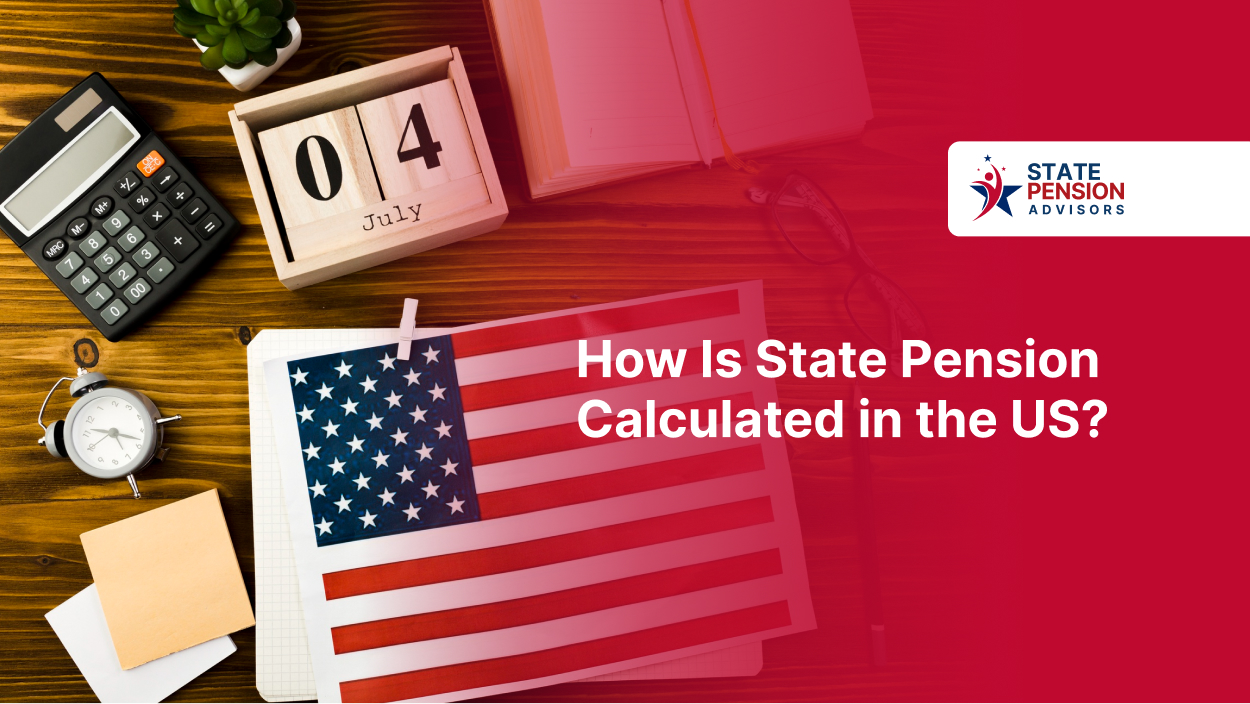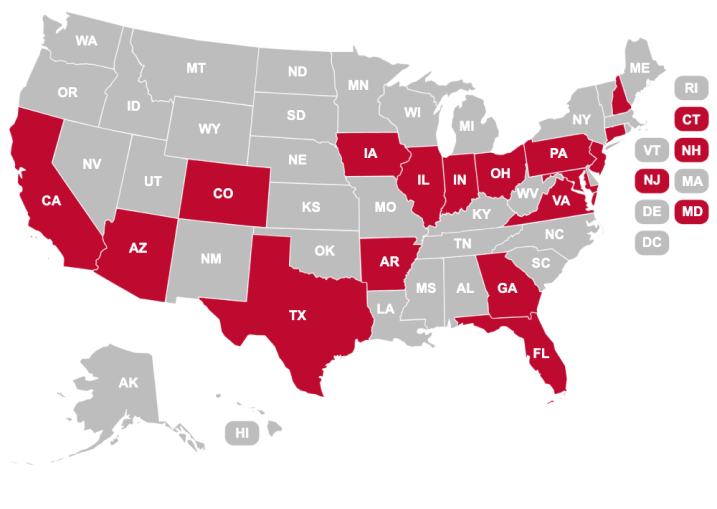What is the Retirement Age in Texas: SSA Guidelines

Retirement is one of the most precious transitions in a person’s life to pause, reflect, and enjoy the rewards of years of hard work. In general, the retirement age in Texas is around 60. The retirement age in Texas depends on several factors, including whether you’re a public employee or retiring under Social Security.
Understanding the Retirement Age in Texas
For Social Security purposes, your full retirement age (FRA) is 67 if you were born in 1960 or later.
You can still claim benefits as early as age 62, but doing so will reduce your monthly payments. On the other hand, delaying benefits up to age 70 increases your monthly payout.
For Texas state employees, the Employees Retirement System (ERS) uses a combination of age and service years to determine eligibility, often known as the “Rule of 80.”
In a simple formula, your age + years of service = 80 to qualify for full retirement benefits. For example, someone who’s 55 with 25 years of service qualifies since 55 + 25 = 80.
Eligibility for Benefits (Public Sector)
Texas public sector employees can retire under several eligibility combinations, such as:
- At least age 60 with 5 or more years of service
- Any age with 30 years of service
- Meeting the Rule of 80
Members who retire early (before meeting full eligibility) may still qualify for reduced benefits.
Benefits and Considerations for Retirees in Texas
1. Social Security Benefits:
Residents can claim Social Security starting at 62, though full benefits begin at 67. Waiting till 70 ensures maximum payments.
2. State Retirement Programs:
Texas offers pension plans through systems like ERS and TRS (Teacher Retirement System), providing monthly lifetime payments based on salary and service years.
3. Medicare Eligibility:
You become eligible for Medicare at age 65, regardless of your retirement date. Early retirees must plan for health coverage until then.
4. Age Discrimination:
Texas law and federal protections under the Age Discrimination in Employment Act (ADEA) safeguard employees from forced retirement or workplace age bias.
5. Retirement Savings:
Besides state pensions, Texans can build personal savings through 401(k), IRA, or 457 plans, offering flexibility and tax benefits.
Pros of Retiring in Texas
1. No State Income Tax on Retirement Income
One of the biggest perks of retiring in Texas is the absence of state income tax. This means your pension, Social Security benefits, and other retirement income remain untouched by state deductions, allowing you to stretch your savings further and enjoy more financial freedom.
2. Affordable Cost of Living Compared to Many U.S. States
Texas offers a relatively lower cost of living, especially in smaller towns and suburban areas. Essentials like groceries, utilities, and transportation are reasonably priced, making it easier for retirees to maintain a comfortable lifestyle without overspending.
3. Mild Winters and Warm Climate Year-Round
If you prefer sunshine over snow, Texas is a great place to settle down. The state enjoys mild winters and long, warm summers, which is ideal for outdoor enthusiasts or those seeking an active retirement filled with walking, gardening, and community events.
4. Access to High-Quality Healthcare and Retirement Communities
Texas has some of the nation’s top-ranked hospitals and medical centers, such as Houston Methodist and Baylor Scott & White. Retirees can also find several well-equipped retirement and assisted living communities that offer quality care and active-living amenities.
5. A Vibrant Culture with Plenty of Recreation
From coastal retreats in Galveston to scenic drives through the Texas Hill Country, the state offers endless ways to relax and explore. Texas is rich in arts, music, and cuisine. The BBQ festivals, live country concerts, and a welcoming community spirit make retirement anything but dull.
Also read - Texas Retirement Benefits
Cons of Retiring in Texas
1. High Property Taxes
While you won’t pay state income tax, property taxes in Texas are among the highest in the country. This can offset the savings you gain elsewhere, especially if you plan to own a large home or live in a popular city.
2. Hot Summers, Especially in South and Central Texas
The Texas sun can be intense. In many regions, summer temperatures easily reach the upper 90s, and humidity can make it feel hotter. Retirees who prefer milder weather may find the summer heat challenging.
3. Limited Public Transportation
Outside of major cities like Dallas or Houston, public transportation options are limited. Retirees who don’t drive may find it difficult to commute or access services conveniently in rural or suburban areas.
4. Rising Housing Costs in Major Cities
As Texas continues to attract new residents, home prices and rent have surged in popular metros like Austin, Dallas, and San Antonio. While smaller towns remain affordable, urban retirees may face higher living expenses.
5. Limited Healthcare Access in Rural Areas
Although Texas has excellent hospitals, access can be limited in rural regions. Those living far from urban centers may need to travel longer distances for specialized medical care or emergency services.
Final Thoughts
Retiring in Texas can be both rewarding and financially smart, but only when your plan aligns with your goals, income sources, and the right retirement programs, and hence having an expert by your side makes all the difference.
At State Pension Advisors, our specialists help you understand when and how to retire, maximize your Social Security benefits, and create a plan that fits your lifestyle.
Schedule a consultation today and start your journey to a worry-free retirement.
Disclaimer
This blog is intended for informational purposes only and should not be considered legal, tax, or financial advice. Retirement benefits and eligibility criteria may vary based on your service years, employer, and personal circumstances. Please consult with a qualified financial advisor or refer to official sources such as the SSA or ERS Texas for specific guidance.
FAQs
1. At what age can you fully retire in Texas?
That depends on which system you fall under. For Social Security, the full retirement age is 67 if you were born in 1960 or later. For Texas state employees, full retirement usually follows the “Rule of 80” when your age and years of service add up to 80. So, if you’re 55 with 25 years of service, you qualify for full benefits.
2. Do I retire at 65 or 67?
It depends on how you define “retire.” You can choose to stop working at 65, but your full Social Security benefits only kick in at 67 (for those born after 1960). However, Medicare eligibility begins at 65, so many people plan around that age even if they delay collecting Social Security.
3. At what age can you collect 100% of your Social Security?
You’ll receive 100% of your Social Security benefits once you reach your full retirement age, which the Social Security Administration (SSA) sets based on your birth year. For anyone born in 1960 or later, that’s age 67. You can claim earlier (as soon as 62), but your monthly amount will be permanently reduced.
4. Can I retire at 55 and receive Social Security?
You can retire from work at 55, but you can’t start Social Security until you’re at least 62. If you’re a Texas state employee, you might still qualify for state retirement benefits earlier through the Rule of 80, depending on your service years, but Social Security payments won’t begin until you meet the federal age requirement.
Related Tags:
what is the age to retire in california
what is the retirement age in pennsylvania
what is the retirement age in florida
Disclaimer
This blog is intended for informational purposes only and should not be considered legal, tax, or financial advice. Retirement benefits and eligibility criteria may vary based on your service years, employer, and personal circumstances. Please consult with a qualified financial advisor or refer to official sources such as the SSA or ERS Texas for specific guidance.










.png)
.png)

.jpg)








